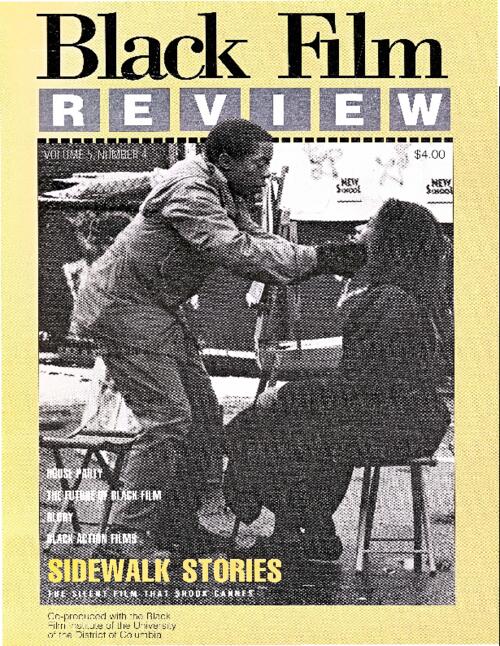Black Film Review
Black Film Review was an international magazine, dedicated to focusing on films and filmmakers from the African Diaspora. Its emphasis was largely on independent cinema. The publication was headquartered in Washington D.C., United States. The magazine made its debut in 1984 and continued to be published until 1995.
The foundation of Black Film Review was laid by David Nicholson in 1984. The inaugural issue of the magazine was an undated, one-page newsletter that Nicholson created on his PC, photocopied, and circulated among his friends. The magazine was initially published by Sojourner Productions on a quarterly basis. After the first three issues, which included a 24-page issue with the magazine's earliest coverage of the Festival of Pan African Cinema Ouagadougou (FESPACO), an interview with Hollywood star Denzel Washington, and poetry by Amiri Baraka, a significant development took place. In 1985, Nicholson entered into a co-publishing agreement with Anthony Gittens, who was the director of the Black Film Institute of the University of the District of Columbia. With the help of funding from the National Endowment for the Arts, the magazine was revamped and published in a new format—printed on glossy paper and including photographs.
In 1986, Nicholson joined the editorial team of The Washington Post Book World as an editor and book reviewer. However, he continued to maintain his role as the editor and publisher of Black Film Review for another year before handing over the responsibility to Jacquie Jones. Under the stewardship of Jones, the publication broadened its coverage of Panafrican film and filmmakers, and earned significant acclaim. It was used as a text at numerous film schools in the United States and abroad. Notable contributors to the publication included eminent film scholars such as Donald Bogle, Phyllis Klotman, Pat Aufderheide, Manthia Diawara, and Clyde Taylor.
During its last two years in publication, Black Film Review was co-published by Eric Easter and edited by historian Leasa Farrar Frazer. The magazine left a lasting legacy in its exploration and coverage of independent cinema and filmmakers from the African Diaspora, serving as a significant resource for students, scholars, and film enthusiasts alike.{{Categories}}